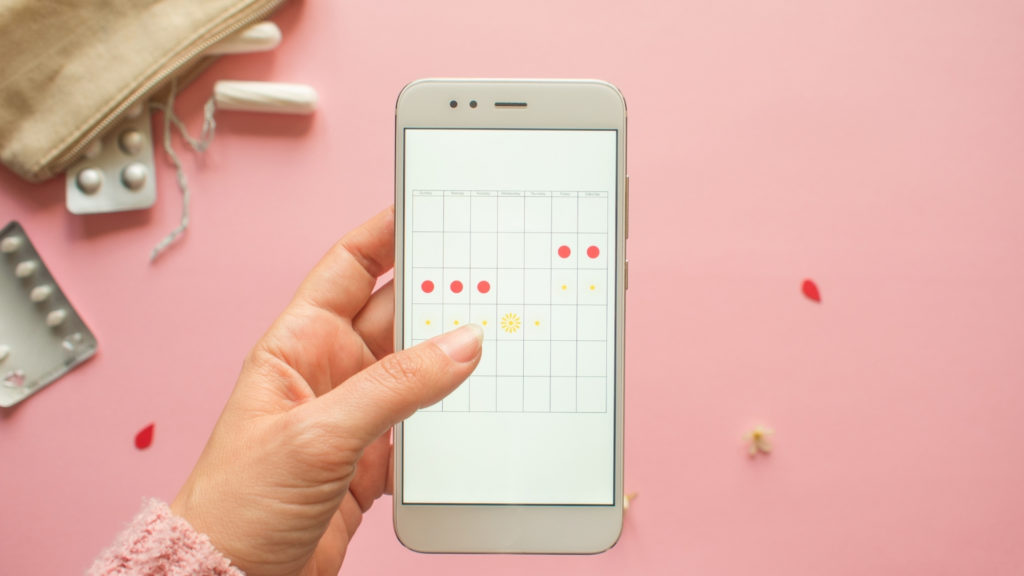There’s no longer a three-week time period on your white pants.
You know the horror story: there you are, minding your own business, when Mother Nature drops off a surprise present. Now you can stop saying RIP to endless pairs of underwear and cute pants that have been ruined and say hello to your next best friend in women’s health: LifeCycle.
Period Tracking Technology
Whether you’ve tried to keep track of your period by marking a calendar, using your phone, or any other method you can think of, it all comes down to one universal truth: it’s a real hassle trying to predict when you’re period is coming. While some women have the blessing of being on time every month, a lot don’t: and LifeCycle was made with you in mind.
The app was created by Atlanta-based startup LoveTap, a women-led business that has been consistently amazing its users with irregular cycle support, a modern interface, and user-friendly entries. The app not only helps you mark your period—irregular or otherwise—it can also help you track your sexual activities, set birth control reminders, and help predict fertility. A trial 90-day period runs for $4.99, or a full membership can be purchased for $19.99 through Apple’s App Store.
Irregular Periods and Why This Matters
A regular period is one that is experienced 11 to 13 times per year, usually within 48 hours of each other on the same time frame each month. Symptoms accompanying periods may vary, but they are generally predictable once a menstruation pattern is established. Painful periods are different from irregular periods; intense pain may actually be a sign of a different disorder called dysmenorrhea. Irregular periods, which are difficult to track or predict, are not uncommon; specific statistics are difficult to find, however, since irregular periods are often caused by an underlying problem. It can be one, or a combination, of the following:
- For a few years after menstruation first begins, and a few years before menstruation begins to end due to hormones adjusting
- Polycystic Ovarian Syndrome (PCOS) and other pelvic organ illnesses
- Excessive weight loss or gain (including eating disorders)
- Increased exercise
- Emotional stress
- Illness
- Travel
- Certain medicines or hormonal imbalances (this includes illegal drug use)
- Breastfeeding
Although missing a period may be a sign of pregnancy, it may also be a sign of an underlying, more serious problem. If you have irregular periods, you may also experience fertility problems—so it’s important to discuss your options with your doctor.
Peace of Mind
Fortunately, once the cause of your irregular periods is discovered, treatment is simple. Often, some form of oral contraception can help balance out your hormones and restore you to a regular cycle. Occasionally, surgery or a hormone-based birth control method may be recommended.
Finally, missing a period occasionally is not necessarily indicative of a larger problem. Just like every person is unique, each period is going to be different. They can range from three days to seven, the flow may be heavy or light, other symptoms may be present or absent; generally, if something feels off to you, it may be cause for concern. As always, we’re here to help—talk to us about any questions you have regarding irregular periods or how birth control may be able to help!

